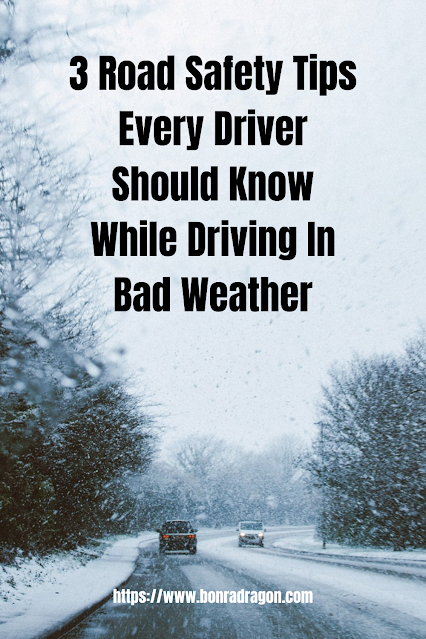Photo by Oleksandr Pidvalnyi
When driving, it's important to know how to react to different conditions. Of course, plenty of factors could affect your abilities on the road and keep you safe at all times. For instance, when it rains or snows while driving, there are certain precautions every driver should always take into consideration.
Assess Your Vehicle
Checking your vehicle is an essential step in preparing yourself for the winter and preventing accidents. In addition to checking your tire tread depth, you should also check the brake system and test lights, headlights, and taillights.
The brake system should also be checked regularly to ensure everything works properly. This includes inspecting all cylinders, springs, and pads for signs of wear or damage. If any appear damaged or worn out, they should be replaced immediately, so they don't fail while driving during inclement weather conditions such as rain or snowfall!
Another important safety feature on vehicles is lights such as headlights or taillights, which help other drivers see where they're going when visibility becomes difficult due to darkness or foggy weather conditions such as rain or snowfall! Therefore these lights must be checked regularly, too, so there's no chance of them failing while driving during inclement weather conditions such as rain or snowfall.
Maintain Your Skill
The next time you drive in bad weather, do not hesitate to slow down and be extra cautious. In fact, consider taking an alternate route if possible. You should also practice safe driving techniques such as maintaining a safe distance from other vehicles and avoiding sharp turns while driving on slick roads.
Keep your skills sharp by taking a defensive driving course every few years. The more experience you have handling difficult road conditions, the better prepared you'll be for when they occur again.
Defensive Driving
Driving in bad weather is dangerous. The roads are slick, and visibility is poor. You want to avoid getting into an accident at all costs, so defensive driving is important for you to learn when driving during bad weather. There are many drivers worried about learning defensive driving, especially during the weather, not understanding its ability to help with their driving. They often worry that it will lead to an accident instead of helping. However, in a similar way that self-driving car facts have stated that autonomous vehicles will help reduce accidents, defensive driving can also help with your driving. It is important for you to learn these facts and how they can help you out on the road.
Defensive driving means you are always prepared for the unexpected. You maintain a safe distance from other vehicles, and you leave yourself time to react if something goes wrong. Defensive driving also means that you're more aware of your surroundings—you can see hazards before they become problems.
This makes it easier to avoid accidents during bad weather because it gives you more time to react if someone tries to cut you off or if there's an obstacle in your path that wasn't there before.
Defensive driving also helps us stay focused on our task: getting safely from point A to point B without getting into an accident along the way.









0 comments:
Post a Comment
Feel free to share your thoughts. However, kindly refrain from adding links in your comments because they will be marked as spam and filtered out. Thank you!